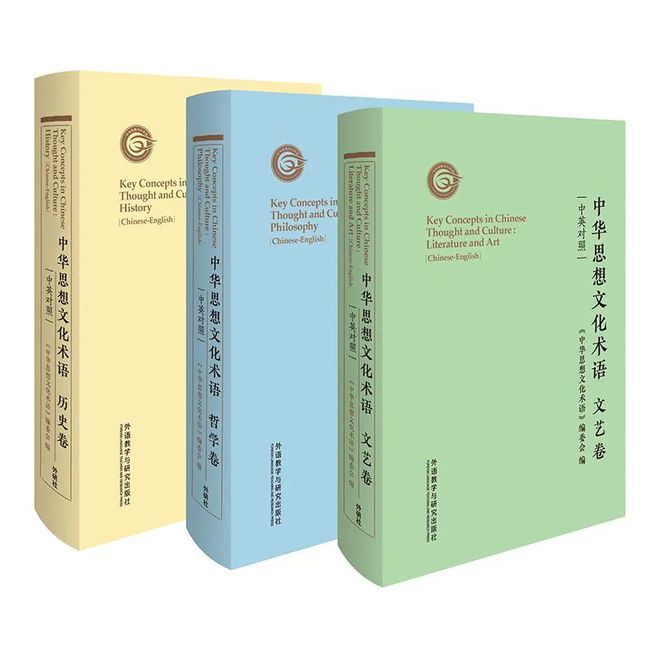many是什么意思翻译中文
本文转自:中国日报
行事交往,是我们一生需要不断复盘总结的功课。
古来圣贤秉持、践行他们独特的行事理念。这些理念中包含的智慧,对今天的我们也大有裨益。
让我们跟着英文解说和音频,从五个相关术语出发,进修今天的功课。
中英文内容来自中华思想文化术语传播工程核心成果——《中华思想文化术语》丛书。
穷则变,变则通,通则久
Extreme – Change – Continuity
事物达到极限则会发生变化,发生变化则能通顺,通顺则能长久。
When things reach their extreme, change occurs; after the change they evolve smoothly, and thus they continue for a long time.
人应把握这一事物变化规律,在穷极之时寻找变化的契机,促成事物的改变,以实现通顺而长久的发展。
People ought to understand the way of change, look for the turning point when things reach their extreme, and facilitate change so as to effect their smooth and long-lasting development.
▌引例
《易》穷则变,变则通,通则久,是以“自天祐之,吉无不利”。(《周易·系辞下》)
The Book of Changes reveals that when things reach their extreme, change occurs. After the change they evolve smoothly, and thus they continue for a long time. That's how "Heaven bestows help to the human world and benefits all."
与时偕行
Go with the Times
行事之法与“时”一起变化。“时”即时间,也指事物发展过程中出现的时机或时运。在“时”所规定的境遇中,有着与之相适应的处事之法。
The notion of adjusting one’s actions to the “times”. The “times” refer to the opportunities or chances that present themselves as human activities progress. In the circumstances determined by the times, one should choose correspondingly suitable methods of handling affairs.
▌引例
损益盈虚,与时偕行。(《周易·彖下》)
Either to decrease or to increase, to inflate or to deflate: all should go with the times.
开物成务
Understand Things and Succeed in One’s Endeavors
揭示事物的真相并据以做成事情。
This term means to find out the truth of things, and act accordingly to succeed in what one does.
“开物”即揭开事物真相,弄清事物的内在联系和规律;“成务”即根据事物的内在联系和规律,确定适当方法,把事情做好做成。
Kaiwu (开物) means to reveal the truth of things and understand their intrinsic relations and rules. Chengwu (成务) means to use proper methods to do things successfully according to their intrinsic relations and rules.
▌引例
夫《易》,开物成务,冒天下之道,如斯而已者也。(《周易·系辞上》)
The Book of Changes aims to reveal the truth of all things on earth, point out how to handle affairs, and do them right. It covers the basic rules governing all things on earth.
授人以渔
Teaching How to Fish
把捕鱼的方法传授给别人。其喻义为:与其直接给人某种东西,不如教人学会如何获得它的方法,使他能够通过自身的努力获得这种东西。
This term expresses the idea that giving away a fish is not as good as teaching one how to fish. The meaning is that rather than giving something away it is better to teach the method of obtaining it so that people can get what they need through their own efforts.
其蕴含的道理主要有:其一,在目标已定的情况下,达到目标的方法更重要;其二,帮助他人及管理他人的长远有效的方法是使人自立。
It implies that once an objective is established, the method of achieving it becomes most important, and that the effective way of helping and managing people in the long term is to encourage them to be self-supporting.
▌引例
授人以鱼,只供一餐;授人以渔,可享一生。(民间谚语)
To give people a fish and you only provide them with one meal; to teach them to fish and they can benefit throughout their lives.
千里之行,始于足下
A Journey of a Thousand Li Begins with the First Step.
千里远的行程,要从迈第一步开始。比喻远大目标的实现,要从小的、基础的事情做起。语出《老子》。
Any major undertaking must start small from the basics. The expression comes from Laozi.
一方面说明在问题或祸乱发生之前一定要提前防范或处置妥当,以免量变引起质变;另一方面说明任何事情都需要从头做起,一个好的开始往往是事情成败的关键,远大的理想和抱负需要脚踏实地地推进,才能在一个个具体目标的实现中完成看似不可能完成的任务。
It represents two different ideas. (1) Proper preventive measures must be taken before problems or troubles occur lest things become worse; (2) All undertakings must start from the very beginning because success or failure often depends on a good start; an extension of this is that reaching distant ideals and aspirations depends on many practical steps along the way to attain the seemingly impossible goal.
▌引例
合抱之木,生于毫末;九层之台,起于累土;千里之行,始于足下。(《老子·六十四章》)
The giant tree that needs several people to encircle grew from a tiny sapling; the platform nine stories high was built from piling many baskets of earth; and the journey of a thousand li begins with the first step.
中华思想文化术语

《中华思想文化术语(历史 哲学 文艺)》是国务院批准设立的“中华思想文化术语传播工程”的成果之一,以学生和教师等群体为读者对象,为其研读、理解和翻译中华思想文化相关内容提供准确权威、正本清源的参考。
这些术语反映了中国传统文化特征和民族思维方式,体现了中国核心价值,编写者用易于口头表达、交流的简练语言客观准确地予以诠释,目的是在政府机构、社会组织、传播媒体等对外交往活动中,传播好中国声音,讲好中国故事,让世界更多了解中国国情、历史和文化。
蔚斩丁2291many中之单词是什么? -
晁邵浦13296226187 ______ 许多['MENI] 代词很多,很多人形容词很多 [比较多最高级最.
蔚斩丁2291many a中文是什么意思 -
晁邵浦13296226187 ______ many a 英[ˈmeni ei] 美[ˈmɛni e] [词典] 许多; [例句]I met him many a time in the bus.我在公共汽车上见过他多次.
蔚斩丁2291many a是什么意思? -
晁邵浦13296226187 ______ many a + 名词单数 意为“很多” ,但整体看做单数 如: Many a student has cellphones . 许多学生有手机
蔚斩丁2291在英语中,a lot of是许多的意思,many和much是什么意思?这两个单词哪一个用在可数上? -
晁邵浦13296226187 ______[答案] many和much都表示“许多”,区别是many后接可数名词;much后接不可数名词; a lot of后既可以接可数名词,也可以解不可数名词,其强调式是lots of; 欢迎采纳!
蔚斩丁2291nany在英语中是什么意思 -
晁邵浦13296226187 ______ many 英 [ˈmeni] 美 [ˈmɛni] adj. 许多,多的 pron. (与复数动词连用)大多数人
蔚斩丁2291more many是什么意思 -
晁邵浦13296226187 ______ many more和much more 都可指“更多”. many more后接一个名词一定是个复数可数名词.若不接名词,则more本身就被看作是一个复数名词,表示复数概念.如: Some students are against the plan,...
蔚斩丁2291吉他上标着many是什么意思 -
晁邵浦13296226187 ______ 你注意看一下到底是mang(许多)还是Many(地名美国梅尼).
蔚斩丁2291i have too many rules in my house. 句中too many 是什么意思,起到什么作用,为什么要用too many. -
晁邵浦13296226187 ______ 表示量多,可数名词前常加many,不可数名词前常加much,而rules是可数名词; 表示过多,可数名词前常加too many,不可数名词前常加too much. 丘吉尔的名言,供参照学习: Never in the history of human conflicts, has so much been owed by so many to so few. 这是二战伦敦上空保卫战取得胜利后,英国首相丘吉尔说的,意思是:在人类冲突的历史上,从未有如此少的人(指英国战斗机飞行员)为如此多的人(指伦敦人民)做出如此巨大的贡献.
蔚斩丁2291i think your advantage too many是什么意思 -
晁邵浦13296226187 ______ I think your advantage too many. 正确:I think your advantages are too many.翻译:我觉得你有很多优点.
蔚斩丁2291all many money back me home是什么意思谁帮翻译下谢谢 -
晁邵浦13296226187 ______ 首先MANY是决对不可以用来修饰MONEY的,而且ALL MONEY就已经直接可以放在句子中了,去掉MANY后翻译为(所有的钱让我回到了家里),如果不是ME,而是MY的话这才是一句通顺的话翻译为(所有的钱返回到我的家里)